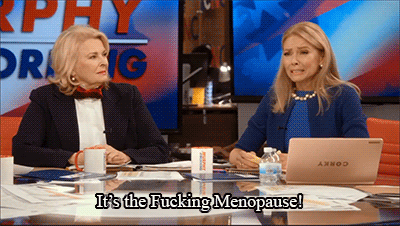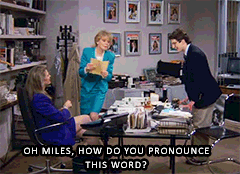Murphy Brown is an iconic feminist piece which introduced a strong female character only allowed unedited on to TV because of a writers strike. The creator (Diane English) was female and the writers room shared some of this diversity. The show’s credit lists no writers, however the top four credited are half female and half male with female writers Diane English and Korby Siamis and male writers Steven Peterman and Gary Dontzig.
The writing itself is even paced and witty, revolving around a recurring cast of characters who continuously build jokes off each other based off their history and the episode’s events. Because of these connections, the writers are able to fit in multiple running jokes which help develop the individuals. The humorous writing is often creative however, it adds many cliches into the mix. Much of the jokes rely on situational humor, with the majority of their landings depending on how the actors physically display the joke rather than just on the writing, a technique that Murphy Brown’s Candice Bergen kills.
Despite its feminist history, Murphy Brown is not without it flaws. The show has a surprising amount of misogynistic and inappropriate humor. At one point in season 1 episode 18, the young producer Miles makes a comment about how his life is hard because he had to turn down a date with “do-anything-for-a-promotion Lisa”, a joke that would not fly in the modern-day era of the Me-Too movement. The same episode sees other uncomfortable workplace jokes such as a coworker suggestively telling Murphy that he “hoped to see [her] in [her] cowgirl outfit” as well as a comment by the same producer asking if Murphy was upset about being slandered because it was “the 18th already” (a hint towards her time of the month which the men of the office creepily knew). This instance is quick and laughable for the 1980’s audience it was geared towards, however when paralleled by Parks and Recreation (2009-2015) the show makes a point to show how inappropriate this is and focuses an entire episode around it.
While the writing of Murphy Brown is lighthearted, easy to follow, and orchestrated by many women it continues to have misogynistic issues which may reflect the norms of the time.

2018 Murphy Brown remake

